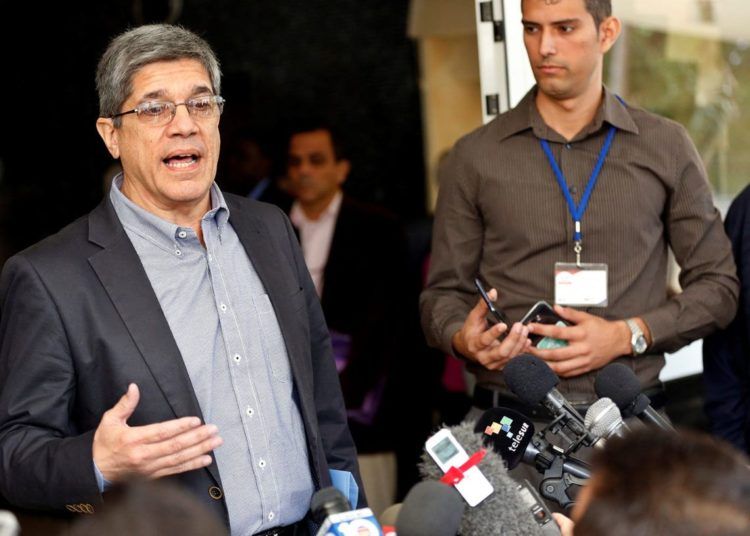The Cuban government reiterated this Wednesday that the U.S. lacks evidence of the alleged “attacks” that affected the health of diplomats and employees of the U.S. Embassy in Havana and that there are only “speculations,” after doctors in the U.S. issued a new report about the incidents.
“It would be interesting to observe the new information. On several occasions new information has been announced but it remains vague, without concrete data about the medical situation of the patients, who they are, their medical histories, the laboratory tests or imaging,” affirmed the director for the United States of the Cuban Foreign Ministry, Carlos Fernández de Cossío.
His statements, given to the press at the beginning of an academic and scientific forum to promote ties between both countries, came immediately after a new report was published in the US. on the mysterious health problems that affected 26 U.S. officials.
The alleged “attacks,” which took place between November 2016 and August 2017 and that still have no official explanation, damaged the part of the inner ear responsible for the balance of those affected without causing brain trauma, according to the new study by doctors from the University of Miami, published in a specialized journal of otolaryngology.
According to the study, all the individuals perceived instability and characteristics of cognitive impairment.
The director for the U.S. of the Cuban Foreign Ministry underlined that “today there are no real facts, analysis based on scientific procedures or evidence that can show that something happened in Cuba that could have harmed the health of the diplomats”.
“Everything has been speculation or manipulated information,” insisted Fernández de Cossío, who accused the U.S. of using this case to slander Cuba and maintain the tension in bilateral relations.
As for the two-day forum that began this Wednesday in Havana under the title “Cuba-United States relations. The midterm elections and the Donald Trump Administration,” he hoped that it would serve to analyze in an objective way the progress of bilateral relations compared to the “misinformation” promoted by those seeking to break relations.
“All participants share the idea that Cuba and the United States can coexist under a regime of respect and peaceful coexistence,” he said.
Both countries announced four years ago the reestablishment of diplomatic relations after more than half a century of enmity, within a process promoted by then presidents Barack Obama and Raúl Castro, and which the current U.S. president, Donald Trump, has put on hold.
The health incidents reported by U.S. diplomats on the island – and also by Canadians – have served the Trump administration to “freeze” the bilateral rapprochement based on the argument that Havana knows who the responsible parties are or, at least, did not protect its staff adequately, something that the Cuban government denies.
At first Washington described the “attacks” as “acoustic,” although it later acknowledged not having confirmed their nature, and among other measures it ordered the departure of 60 percent of the non-essential personnel of its Embassy in Cuba and issued a travel alert for American citizens.
EFE / OnCuba










